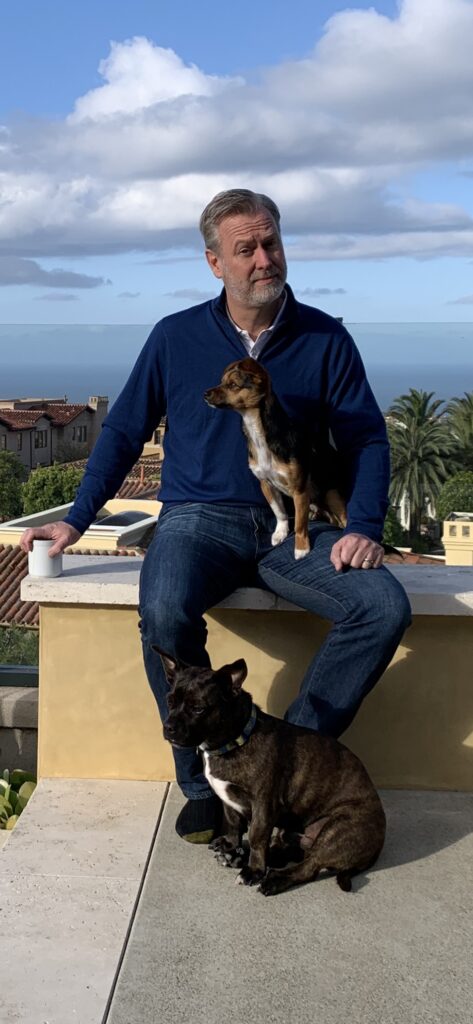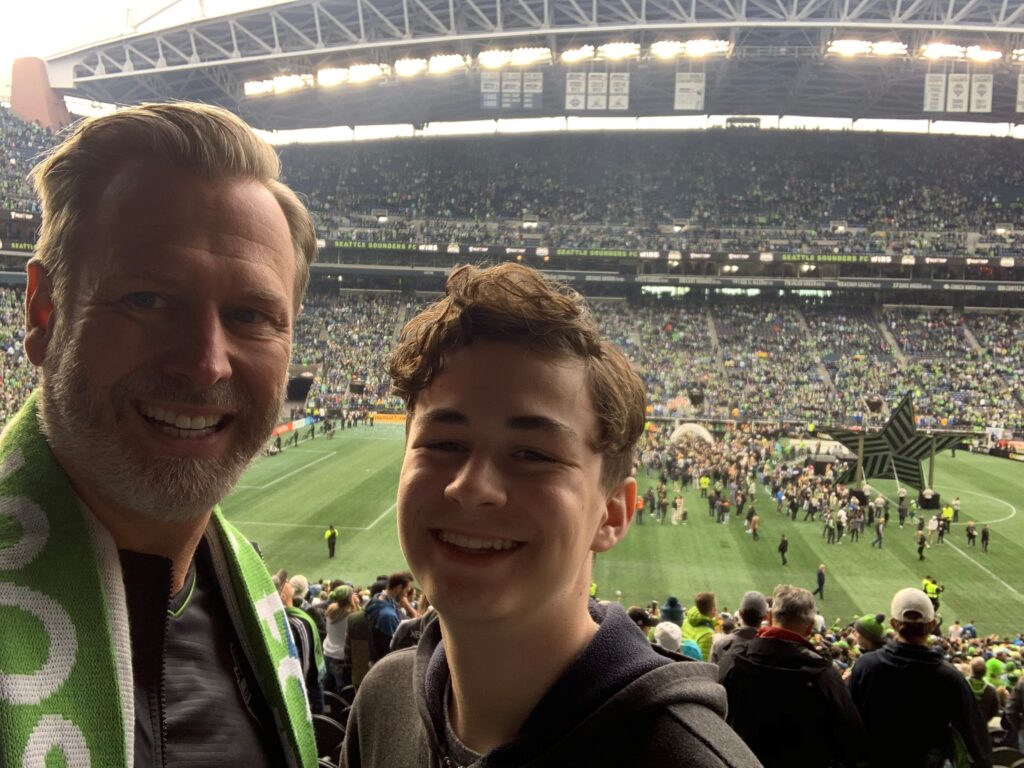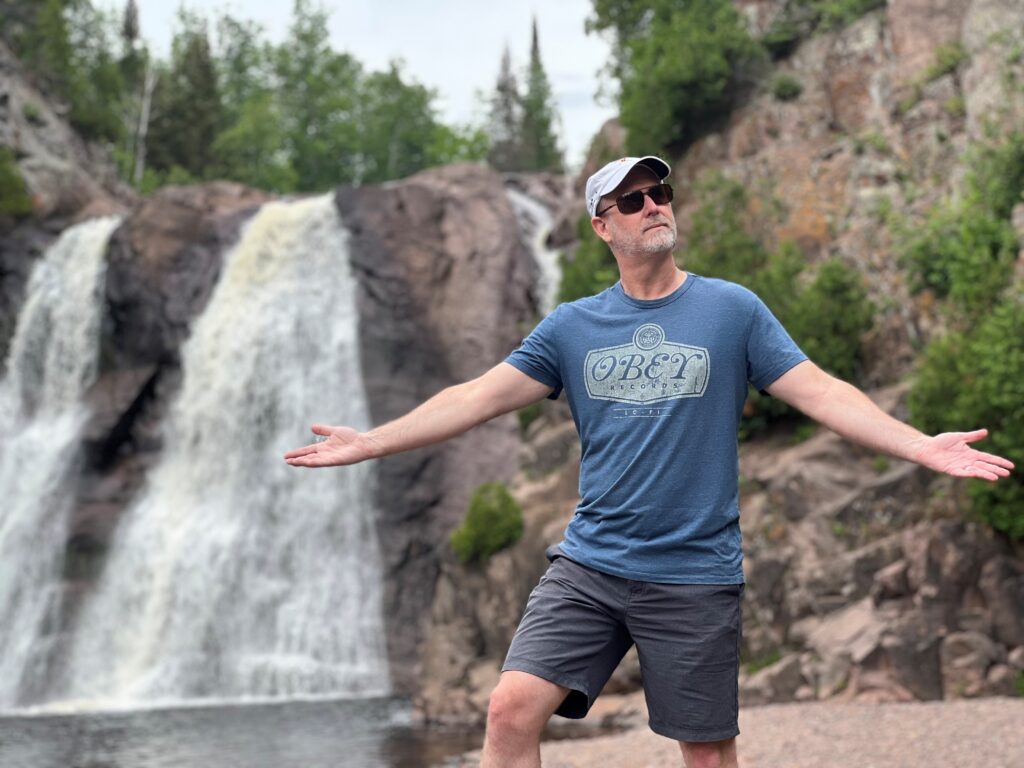Foster Marketing Faculty Spotlight – Mark Forehand
Get to know Mark Forehand, Chair of the Department of Marketing and International Business and Pigott Family Professor in Business Administration, who teaches the elective course Consumer Marketing and Brand Strategy.

Please tell us a bit about your background.
I arrived at Foster from Stanford when grunge music was a thing and have been amazed by the growth of both Seattle and Foster in the intervening years. I have been very fortunate to get to know many of the leaders in the branding and advertising space in Seattle and have worked extensively with them. These collaborations have been both outward-facing (the development of branding metrics for multiple agencies) and inward-facing (the extensive inclusion of those leaders in my courses).
On a personal front, I’m originally from Minnesota and have (mostly) lost the trademark evidence of that origin in my accent. Once upon a time, I was a very competitive cross-country skier and soccer player but now my athletic pursuits are much more casual and involve a lot of mountain biking and hiking throughout the Pacific NorthWest with my family and our giant Greater Swiss Mountain dog, Blu. My more sedentary activities involve watching the Seattle Sounders, films (both high and low quality), and playing in a regular table-top strategy game group.

What excites you about your subject area and what are some of your research interests?
I’m fascinated by the inner workings of consumers, particularly the non-conscious processes that drive our behavior. This has led me to extensively research the influence of consumer identity on behavior. We each self-associate with numerous identities (demographic groups to which we belong, roles we adopt, personal interests we pursue and brands we support). However, the influence of these identities on our choices and behavior is highly variable and my research has extensively investigated what causes specific identities to become more focal and have outsized influence.
How does your work align with Foster’s purpose? Purpose statement: Together…We Foster Leaders; We Foster Insights; We Foster Progress…To Better Humanity
Fostering insights that better humanity is fundamental to a great deal of research I have conducted that merges traditional consumer behavior topics with public health. As an adjunct faculty member in the Department of Global Health and the Department of Health Systems and Population Health, I have been involved in numerous projects that bring marketing best practice to health interventions. These various projects have received funding support from a wide variety of organizations including the Center for Disease Control and Prevention (CDC), Robert Wood Johnson and the Gates Foundation.
How have you worked to make your classroom/course curriculum inclusive?
First and foremost, knowing every student’s name, background and the unique experiences they bring to the classroom and helping bring those insights out. One specific way I try to encourage this is through the extensive use of randomized “warm-calling” in which I post a random set of students that will be called upon each day. I have found that this strategy balances classroom participation and greatly increases student involvement.
Any favorite memories from your experience with Full-Time MBAs/Evening MBAs?
I have contributed a “Fleecing the Faculty” poker event to every Challenge for Charity auction. The evenings spent losing money to current and former MBA students have been a great joy.

Please tell us about the structure of your course.
My course is broken up into two parts—the first third of the course focuses on consumer psychology. In this section, we delve deeply into the greatest hits of cognitive and social psychology that are most directly related to the practice of branding. In the final two thirds of the course, we master a framework for building out an effective brand strategy that includes the development of a brand narrative, brand positioning and brand pillars. We then put this framework to work in a series of live cases that incorporate input from industry experts.
How have your relationships with industry experts influenced what happens in your class?
My course, Consumer Marketing and Brand Strategy, leans heavily on industry experts for the creation of live cases. Although they have many merits, traditional cases on branding topics can quickly feel dated as students are well aware of the brands and campaigns in question. As a result, I develop three new live cases each year that focus on a specific branding challenge or redesign that firms and agencies are currently facing. I work with my contacts in these groups to develop a focused creative brief that gives MBA teams the opportunity to develop a full brand strategy and executional plan that exactly mimics what these brand managers are facing and prepares students for the precise types of challenges they are likely to face. Moreover, the industry experts in question attend the live case presentations and provide immediate feedback on MBA solutions. Over the years, these live cases have covered brands drawn from an extensive set of industries ranging from mobile apps, fashion, crypto, distilled spirits, environmental non-profits, grocery staples, hospital networks, and cannabis. Every year is different and every live case is absolutely current.
